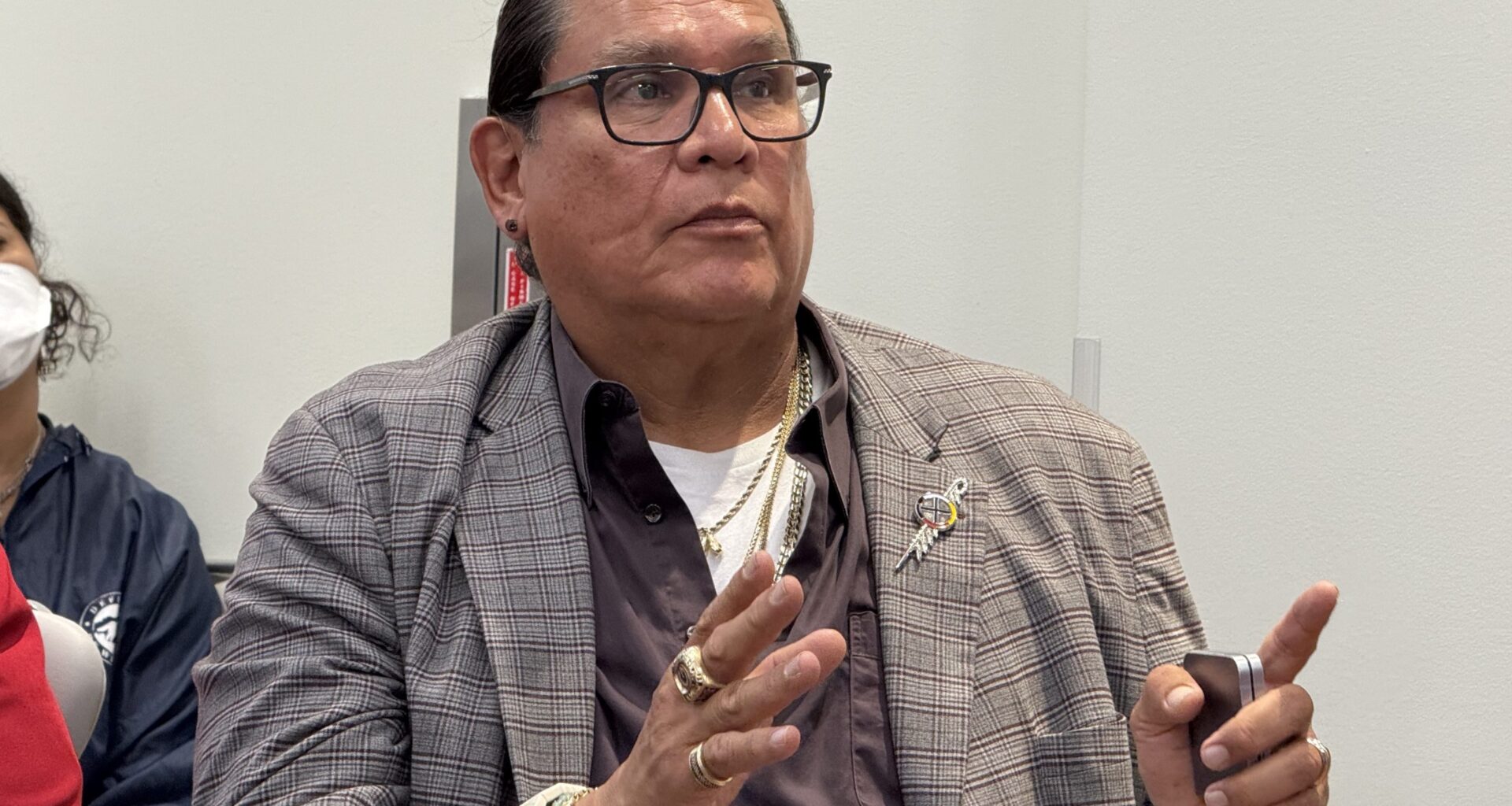Ernest L. “Ernie” Stevens Jr. — who led the powerful Indian Gaming Association for more than 20 years while working to help others through community activism — died suddenly on Friday, Sept. 26.
His family issued a statement late Friday acknowledging his death.
“It is with heavy hearts that we announce the passing of our Dad and Papa, Ernie Stevens Jr.,” they said in a statement. “We ask for privacy at this time as our family navigates this profound loss. More information and announcements will be shared in the coming days. Thank you for your prayers and support.”
Jason Giles, executive director of the Indian Gaming Association, also released a statement late Friday.
“Our IGA Board and staff are stunned and saddened by Chairman Stevens passing,” the statement said. “Out of respect for his wife Cheryl, his lovely family and the Oneida Nation, we will issue a full tribute at the appropriate time. Please send your prayers to the Stevens family.”
Stevens’ death came just weeks after he was recognized in Milwaukee for leading the association during a time when tribal gaming operations nationwide reached record revenues of more than $43 billion.
“Ernie Stevens Jr. has dedicated his life to Indian Country with unwavering commitment and passion,” Mark Powless, chairman of the Oneida Gaming Commission, said in honoring Stevens on Aug. 12 in Milwaukee.
“From the boxing ring to the boardroom, in his career, he has demonstrated strength, vision, and resilience that uplift tribal communities nationwide,” Powless said. “His leadership has advanced tribal gaming and empowered tribal governments, and we are proud to honor his achievements and lasting legacy.”
Stevens, a citizen of the Oneida Nation of Wisconsin, was re-elected in April to his 13th term as chairman of the IGA on the final day of the Indian Gaming Tradeshow and Convention in San Diego, California. The IGA is based in Washington, D.C., and works with the federal government and Congress to develop policies and advocate for tribal gaming issues.
He told the crowd gathered in San Diego in April that he was proud to continue serving.
“Together, we will vigorously advance our proactive agenda and stand ready to unite Indian Country to defend tribal sovereignty at all costs,” he said. “I promised each of you that I would dedicate myself fully — morning, noon, and night — to champion our interests in tribal government gaming. I am honored to be your messenger, amplifying the voices of our elected tribal officials, and I will carry your message with pride and purpose.”
He told the gathering in August in Wisconsin that he would redouble efforts to work with the Washington leadership.
“We have to work with this administration and do our best to educate and inform them about who we are, so they understand tribal government gaming and its responsibilities to tribal communities,” Stevens said. “I’m not going to disrespect anybody, but I will stand up to anyone who challenges tribal sovereignty or our efforts in education, health, and welfare. I intend to speak to them as a gentleman and a warrior. I will be strong for Indian Country. That’s our battle right now.”
Stevens served as an elected councilman of the Oneida Nation from 1993-1999, and also served as first vice president of the National Congress of American Indians, according to the Oneida Gaming Commission’s announcement when he was honored in August.
He was inducted into the American Gaming Association’s Gaming Hall of Fame in 2015, and served on the boards with the Center for American Indian Enterprise Development, the Nike N7 Foundation, the executive board for the Center of Native American Youth and on the Native American advisory board for the Boys and Girls Club of America.
Stevens was also an athlete, starting as a boxer in his teens. He was inducted into the National Indian Athletic Association Hall of Fame and into the North American Indigenous Athletics Hall of Fame in 2022.
In 1975, at age 16, he joined with renowned boxer Louie Askinette in co-founding the Soaring Eagle Boxing Club in Oneida. He was a four-time consecutive state heavyweight champion from 1976-1979, and was a two-time National Heavyweight Champioin out of Carson City, Nevada, in 1977 and 1978, according to the North American Indigenous Athletics Hall of Fame website.
He received an associate’s degree from Haskell Indian Junior College in 1983 and a bachelor’s in criminal justice from Mount Senario College in 1996, the Hall of Fame reported. He obtained a master’s in management from the University of Phoenix in 2021.
He and his wife, Cheryl, were married for more than 45 years.
Related

